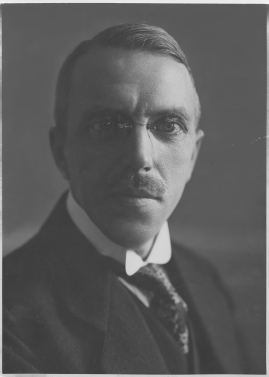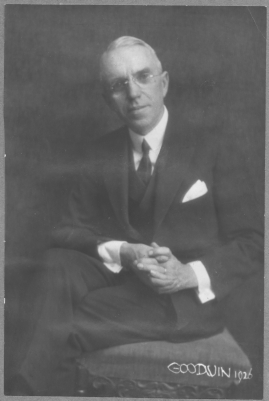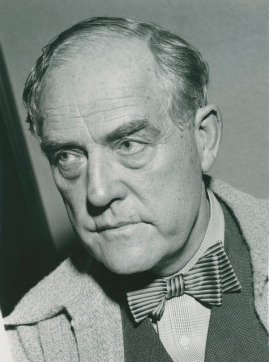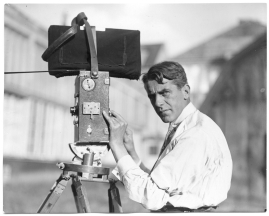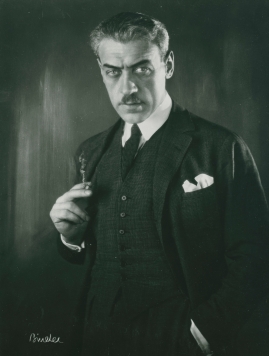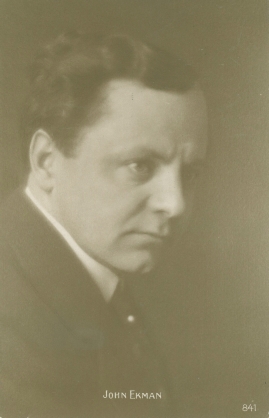Charles Magnusson
Table of contents
- Basic facts
- Links and resources
- Biography
- Awards
- Films
- Original work
- Soundtrack listing
- Groups
Basic facts
Media (2)
| Producer | |
|---|---|
| Screenplay | |
| Show all films |
Biography
Swedish producer and company director. Born in Gothenburg. Died in Stockholm-The "grand old man" of Swedish film production, Charles Magnusson, never referred to himself as a film producer and is never mentioned in any opening credits. His heyday was during the first 25 years of Swedish cinema, and the title was not used at the time. As head of a film company one's title was director. Yet in practice this in no way stopped Magnusson from acting as head of production and he is undoubtedly the figure behind what is usually referred to as the "Golden Age of Swedish...
Links and resources
Biography
Swedish producer and company director. Born in Gothenburg. Died in Stockholm
-
The "grand old man" of Swedish film production, Charles Magnusson, never referred to himself as a film producer and is never mentioned in any opening credits. His heyday was during the first 25 years of Swedish cinema, and the title was not used at the time. As head of a film company one's title was director. Yet in practice this in no way stopped Magnusson from acting as head of production and he is undoubtedly the figure behind what is usually referred to as the "Golden Age of Swedish cinema". Without his creative and forward thinking, his administrative skills and artistic eye, Swedish cinema would not have the proud tradition to look back on that it has today.
Having begun as a bookkeeper (and taught himself the principles of finance) he joined the world of film in 1904. He started out as a news cameraman, filming events such as the burial of King Christian IX in Copenhagen, the golden wedding of Swedish King Oscar II and the events surrounding the breakup of the union between Sweden and Norway. He developed these films in his own laboratory, showing them at two of his own cinemas in Gothenburg, for which he also began to buy films for screening.
In 1908 he was regarded as one of the most established men in the film business, and when a group of bankers in Kristianstad founded AB Svenska Biografteatern and needed an expert in the management team, their choice fell to Magnusson. He accepted on condition that he became managing director, a stipulation they wisely accepted. By 1909, Svenska Bio, as the company was also known, was enjoying considerable success with the first "sound films", based on a German invention modified by Magnusson himself: he got artists to mime to songs on existing gramophone records. This in turn led to him employing professional artists and directors to film stage plays such as Värmländingarna ('The Värmlanders', Ebba Lindkvist, 1910) and Bröllopet på Ulfåsa ('The Wedding at Ulfåsa, Carl Engdahl, 1910).
In 1911 Magnusson made two important decisions, firstly to move to Stockholm and build a laboratory and studio at Lidingö, and secondly to offer full time employment to skilful technicians and directors. With masterly intuition he appointed Julius Jaenzon as principal cinematographer and laboratory manager, Victor Sjöström as director and head of filming, Georg af Klercker as director and studio manager, closely followed by Mauritz Stiller, a quartet that over the following years would put Swedish cinema on the international map with films such as A Man There Was,(Terje Vigen) The Phantom Carriage (Körkarlen), Bonds That Chafe (Erotikon, US title: Just Like a Man), Sir Arne's Treasure (Herr Arnes pengar), Dawn of Love (Ingmarssönerna) Gösta Berlings saga ("Gösta Berling's Story") and many more. In 1919 Magnusson pushed through a merger between Svenska Bio and Skandia which together became Svensk Filmindustri. New studios were built at Råsunda, and new cinemas were built or old ones refurbished. By 1920 Svensk Filmindustri had offices in London, Paris, Amsterdam, Berlin and New York.
Perhaps things moved on a little too quickly. The international film industry recovered after the First World War and Hollywood soon began to attract the best directors. In 1928 Magnusson left his position as managing director more of less of his own free will and was replaced by the finance director Olof Andersson, who steered Swedish cinema into the comfortable backwaters of the 1930s.
Bengt Forslund (2011)
